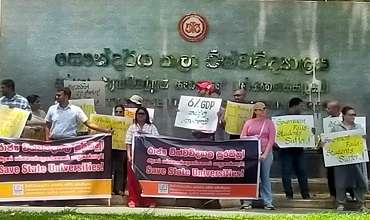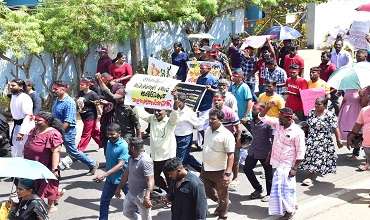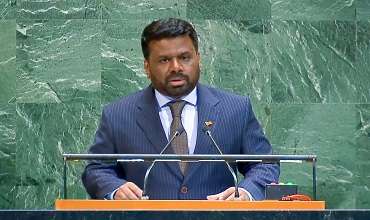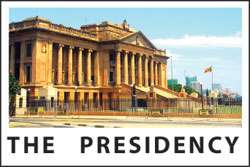Central Bank cuts interest rates by 0.5%
The Central Bank (CB) on Tuesday further cut interest rates by 0.5 per cent as the country’s economic situation improved.
A statement from the banking regulator said the CB’s Monetary Policy Board at its meeting held on March 25 decided to reduce the Standing Deposit Facility Rate (SDFR) and the Standing Lending Facility Rate (SLFR) of the Central Bank by 50 basis points (bps) to 8.50 per cent and 9.50 per cent, respectively.
The text of the statement is as follows:
The Board arrived at this decision following a comprehensive assessment of current and expected domestic and international economic developments, to maintain inflation at the targeted level of 5 per cent over the medium term, while enabling the economy to reach its potential. In arriving at this decision, the Board took note of, among others, subdued aggregate demand conditions, the lesser-than-expected impact of the recent changes to the tax structure on inflation, favourable near-term inflation dynamics due to the recent adjustment to electricity tariffs, well-anchored inflation expectations, the absence of excessive external sector pressures and the need to continue the downward trajectory in market interest rates. The Board observed that the possible upside risks to inflation in the near term would not materially change the medium-term inflation outlook, as economic activity is projected to remain below par for an extended period. The Monetary Policy Board underscored the need for a swift and full past-through of monetary easing measures to market interest rates, particularly lending rates, by the financial institutions, thereby accelerating the normalisation of market interest rates in the period ahead.
Inflation is expected to converge to the targeted level in the period ahead
Headline inflation, as measured by the year-on-year change in the Colombo Consumer Price Index (CCPI, 2021=100), decelerated to 5.9 per cent in February 2024 from 6.4 per cent in January 2024, mainly driven by the deceleration in non-food inflation. Although food inflation accelerated on a year-on-year basis in February 2024, a month-on-month deflation was recorded, reflecting the easing of food prices. Core inflation that reflects underlying demand pressures in the economy remained subdued at 2.8 per cent in February 2024. Moreover, realised inflation for the first two months of 2024 indicates that the impact of the Value Added Tax (VAT) amendments effected in January 2024 on inflation may not be as large as initially envisaged. Further, compared to the previous projections, headline inflation is anticipated to moderate in the forthcoming months, as the effects of the temporary uptick in inflation driven by the VAT amendments are expected to be partly offset by the recent downward revision to the electricity tariff and the moderation in food prices. However, inflation is expected to eventually converge to the targeted level in the period ahead and remain around the target over the medium term, supported by appropriate policy measures.
The recovery in domestic economic activity is expected to continue
As per the GDP estimates published by the Department of Census and Statistics (DCS), the economy is estimated to have grown by 4.5 per cent, year-on-year, in the fourth quarter of 2023, following the moderate expansion of 1.6 per cent (year-on-year) recorded in the third quarter of 2023. Favourable growth outcomes recorded in the second half of the year helped limit the overall contraction of the economy to 2.3 per cent in 2023, compared to the contraction of 7.3 per cent (revised) recorded in 2022. This growth momentum is expected to continue in the upcoming quarters.
A further decline in market interest rates is warranted in the period ahead
The overall market interest rate structure has adjusted downwards in response to the monetary policy easing measures implemented thus far and the reduction of risk premia attached to yields on government securities following the implementation of the domestic debt optimisation (DDO) operation. However, the pace of reduction of market interest rates, particularly lending rates, slowed in recent months, and yields on government securities, which recorded a notable downward adjustment in the first two months of the year, have shown some reversal. Meanwhile, credit extended to the private sector by Licensed Commercial Banks (LCBs), which was in an expansionary phase since June 2023, witnessed a contraction of outstanding credit in January 2024, partly due to the valuation effects arising from the appreciation of the Sri Lanka rupee against the US dollar and possible post festive season settlements. However, credit growth resumed to some extent, as reflected by the preliminary data for February 2024. The prevailing accommodative monetary policy stance along with the reduction of policy interest rates effected today are expected to induce a further reduction in market lending rates and encourage the expansion of credit to the private sector by LCBs in the period ahead.
The external sector continued to maintain a positive momentum
The merchandise trade deficit is estimated to have widened in January 2024 compared to the same period in 2023, driven by a higher increase in imports. However, trade in services, mainly earnings from tourism, recovered significantly during the two months ending February 2024, while the positive momentum of workers’ remittances continued. Gross official reserves (GOR) improved to US dollars 4.5 billion by end February 2024, which include the swap facility from the People’s Bank of China. The reserve buildup was supported by considerable net purchases by the Central Bank from the domestic foreign exchange market amidst increased foreign currency inflows compared to outflows. The Sri Lanka rupee, which appreciated by 12.1 per cent against the US dollar in 2023, continued to show an appreciation of 6.7 per cent thus far in 2024, in spite of notable foreign exchange purchases by the Central Bank. Meanwhile, the authorities reached a Staff Level Agreement on economic policies with the International Monetary Fund (IMF) following the second review of Sri Lanka’s Extended Fund Facility (EFF) arrangement and the 2024 Article IV consultation.
- ENDS -
-
Still No Comments Posted.















Leave Comments